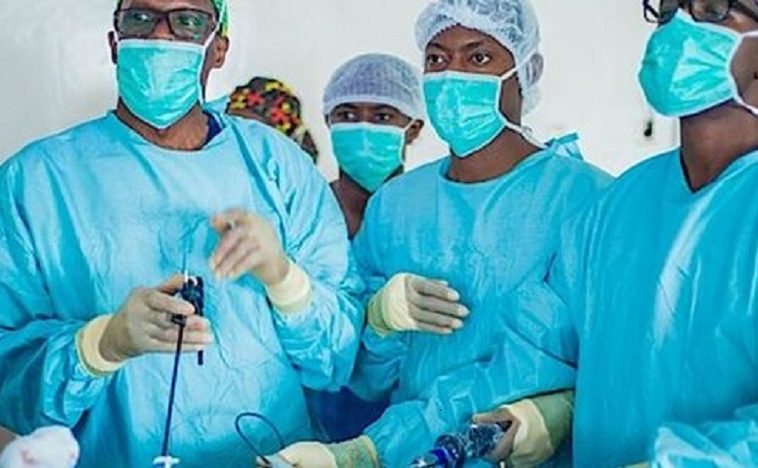The assassination attempt on Donald Trump and the withdrawal of Joe Biden have turned the race for the White House upside down. The polls are close, and in terms of predicting the outcome of the election, they are next to meaningless at this point in time.
As the past few weeks have shown, there is so much that can still happen until November. We don’t know how people will see and feel the economy by then, how the wars in Ukraine and Gaza will develop, who will show up and vote, or how third-party candidates will affect the race. We have to come to terms with the fact that this is a close race and will probably remain so.
Add to that that polling in the U.S. has been seriously skewed for several election cycles in a row. Ever since the surprise election of Donald Trump in 2016, pollsters have claimed to have fixed the issue(s), but that remains to be seen. As I have argued in a recent piece for the U.S. magazine Newsweek, with months to go until election day, it also really doesn’t matter whether one is a point or two behind or ahead. What matters is to have the right game plan to win the race.
Political scientists have always been interested in elections, but their main ambition was to predict the outcome or even to prove that campaigns don’t matter. As a PhD in political science turned spin doctor, I always found the actor perspective more interesting. In other words, what can or should be done to win an election?
The fact that Joe Biden endorsed Kamala Harris when he withdrew his own candidature set in motion a dynamic where Democrats immediately coalesced behind the incumbent vice president. Within a week, she apparently raised 200 million USD and signed up close to 200’000 volunteers. These two numbers illustrate the enthusiasm of the Democratic base for Kamala Harris. It’s a welcome development for Democrats and may help them close what in the jargon of politicians is called the “enthusiasm gap,” meaning that until lately, Republican voters were more motivated for their top candidate and to turn out and vote than their Democratic counterparts.
Kamala Harris has also had a great campaign start online. Beyoncé and Charli XCX have both implicitly or explicitly endorsed her. In general, I am sceptical about the endorsing power of celebrities, that is, they cannot deliver votes per se. A recent study conducted by USA Today and Suffolk University has confirmed that yet again. For me as a political consultant, the question is always how to use an endorsement strategically and how it fits into the overall campaign plan. In the case of Harris, it’s to use it as a bridge to younger voters and a door opener. Their goal is to introduce her as someone that younger voters can relate to better than somebody like Trump or Biden, for that matter. A lot of the traffic generated online around Charli XCX’s brat girl summer is apparently organic. That is, of course, of particular value, as I have long been highly sceptical about the value of bought online traffic and engagement. Again, this is a welcome development for Democrats, as they have not been polling as well as they should among younger voters during the past months.
From a campaign perspective, I would certainly try to maximise the online engagement, but I would in no way rely on it nor expect too much from it. Younger voters (at least in the Western world) have been notoriously unreliable to turn out and vote. It is highly likely that in the end, the 2024 U.S. presidential race will be decided by swing voters.
Every election campaign is always a competition about which side can define themselves and the other side first. In most polls, a majority of voters say that overall they have an unfavourable opinion about Harris. It’s fair to say, however, that for many voters, this is an impression that they have of Harris and not a final verdict. Public opinion about her is still rather undefined and can change. That’s why timing is of essence in this case. Kamala Harris and her team have to define themselves before Donald Trump and Republicans get a chance to do so, and they will not waste time. In other words, Harris better get ready for a barrage of negative attack ads on her coming from Trump and Republicans.
Negative campaigning is as old as election campaigns themselves. In the U.S., due to the political culture and the electoral system, they are however carried out in a very explicit manner. In an election, voters ultimately have to make a choice, and that’s why election campaigns are all about drawing contrast and highlighting differences.
One of Harris’ major vulnerabilities is certainly the situation at the southern border. It’s an issue that overwhelmingly plays in favour of Donald Trump. To their defence, Democrats can legitimately say that it was Donald Trump himself who killed the bipartisan border bill. But then again, why did Democrats ignore the issue during the first three years of the term?
And beyond the issue of immigration, in almost every poll, a majority of voters disapprove of the job Joe Biden does as president and think that the country goes in the wrong direction. As I write in my new book “Beat the Incumbent: Proven Strategies and Tactics to Win Election,” elections with an incumbent are foremost a referendum on the incumbent. Strategically speaking, Donald Trump and Republicans have to tie Kamala Harris to Joe Biden’s record. After all, she obviously was part of the Biden-Harris administration.
It’s been said that great campaigns are never a rerun of previous great campaigns. In that sense, I have long argued that Donald Trump needs to reinvent himself. I don’t mean to be cynical, but the assassination attempt on him would have been an opportunity to do so. During a crisis, one always has to think of pictures, and there is no doubt that the picture of Donald Trump with his fist in the air was very powerful.
During the Republican convention, there was much talk that we would see a new and softer Donald Trump, and we did during the first part of his acceptance speech, when he read off the teleprompter. After that, he pivoted back to the Donald Trump we have known and thereby reminded swing voters why they voted him out of office four years ago.
Donald Trump is probably the most polarising politician on earth right now. There is no doubt that he has a tremendously enthusiastic base of supporters. His legal troubles show that even a conviction doesn’t change much for them. The problem is that they can all only vote once, and under normal circumstances, they are not enough to win a presidential election.
During his time at the White House, Trump spent much of his time appealing to the base and seemed to almost on purpose try and turn off the majority that had not voted for him. If there was any outreach done, it was with young black men, and it worked surprisingly well. I actually think that if he had done more of this, he could have won reelection last time.
If Donald Trump wants to win this time, he has to do something that has become unfashionable in U.S. politics, which is to reach out to swing voters in a meaningful way. Remember that a U.S. presidential election means you spend a billion U.S. dollars, ultimately to influence 5% of the voters who live in a handful of states.
Louis Perron, PhD, is a political scientist and consultant based in Switzerland. He has orchestrated successful election campaigns in various countries around the globe. He speaks fluent English, German, and French and has been teaching political marketing for more than a decade. The title of his latest book is “Beat the Incumbent: Proven Strategies and Tactics to Win Elections,” published by Radius Book Group.



